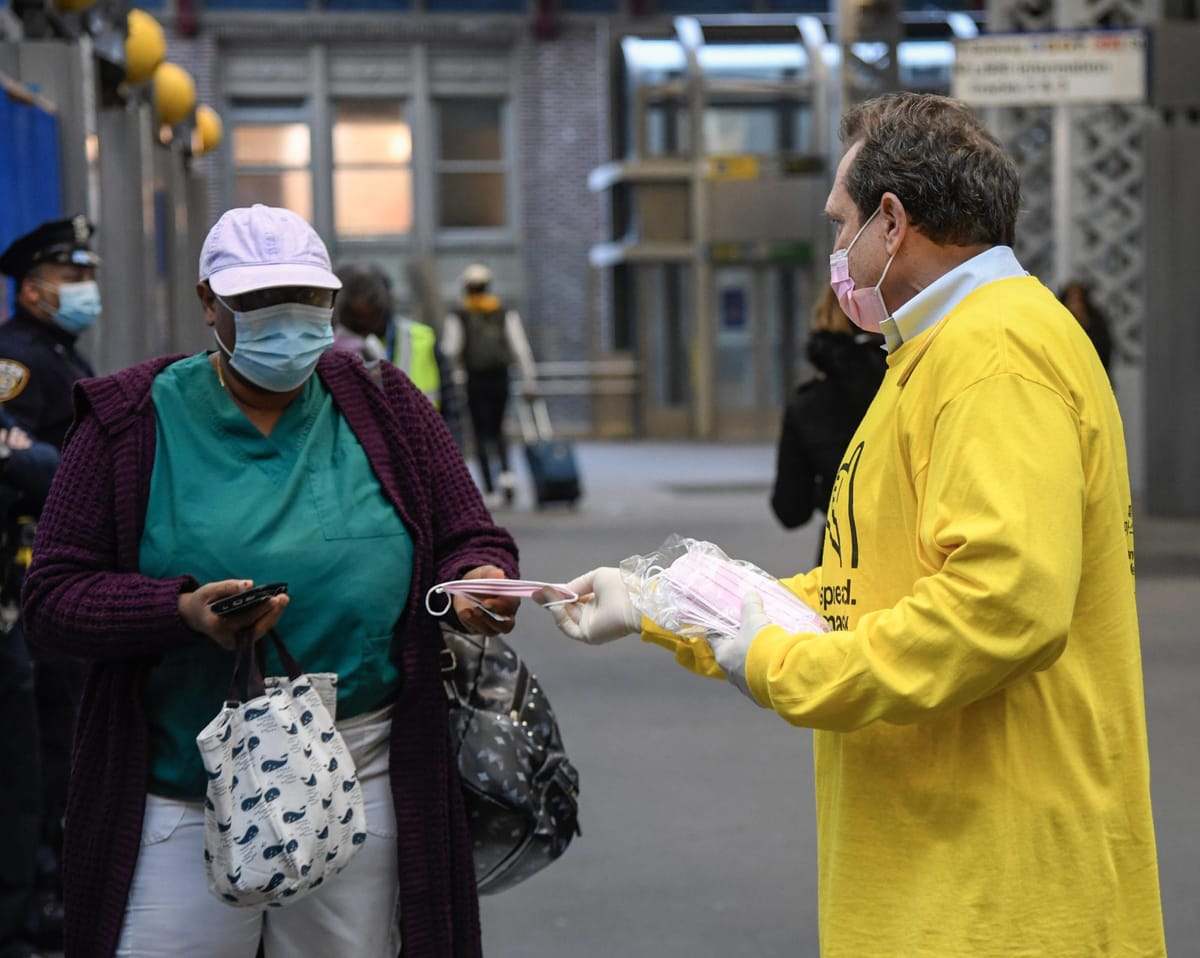Brooklyn COVID-19 Numbers, Breast Cancer Awareness Month & More


Worried about a second wave of the coronavirus? Well, Mayor de Blasio assured New Yorkers yesterday that it won’t happen. “The numbers suggest we are stopping a second wave,” he said. “But, we have to remain vigilant, and this next week or two will be crucial to make sure we consolidate our progress and retain the progress we had previously.” And this morning, he said, “I’ve talked very openly about the fact there is a threat of a second wave, but we can stop that second wave. Absolutely requires people to participate and one of the best ways to participate is by getting tested.”
The daily number of people admitted to NYC hospitals for suspected COVID-19, the threshold is 200 patients; today’s report is 62 patients with a confirmed positivity rate of 19.7% for COVID-19. The newly reported cases on a seven-day average threshold are 550 cases; today’s report is 496. And the percentage of people tested citywide positive for COVID-19, the threshold is 5%; today’s report, 2.52%. And today’s seven-day rolling average number is 1.58%.
But sometimes numbers could be confusing; at least, the numbers provided by the city are. Earlier this month, the Mayor stopped reporting COVID-19 data for the Brooklyn cluster in his daily briefings and the NYC Department of Health stopped sending out their alerts. So, we mapped the data that was available. It turns out, Brooklyn’s COVID-19 cluster infection rates by zip code don’t look so great. You can view more here.
The results in the initial coronavirus testings in NYC public schools came out. Out of 16,348 staff members and students tested randomly by the school system in the first week of its testing regimen, the city has gotten back results for 16,298. There were only 28 positives: 20 staff members and eight students, the NY Times reported. “If students can continue to return to class, and parents have more confidence that they can go back to work, that could provide a boost to New York City’s halting recovery,” the Times wrote. “The absence of early outbreaks, if it holds, suggests that the city’s efforts for its 1.1 million public school students could serve as an influential model for school districts across the nation.”
A wedding at a Hasidic Jewish synagogue in Williamsburg — Congregation Yetev Lev D’Satmar—was expected to draw up to 10,000 people. It was barred by a New York state order. The wedding will continue, the synagogue said, but will be limited to a smaller group of family members.
This month is Breast Cancer Awareness month. A 40-foot-long, state of the art van is changing the way women in New York can get mammograms. The ScanVan travels throughout all five boroughs providing thousands of mammograms, clinical breast exams, and care coordination for communities in need, regardless of ability to pay, each year, we wrote. The ScanVan is just one of the many services provided by Project Renewal, a non-profit that provides health services, transitional and permanent housing and connecting clients to services that match their needs for those without a home throughout the city.
And a Brooklyn doctor is fighting to reduce disparities in breast cancer care. Dr. Vivian Bea, chief of breast surgical oncology at the New York-Presbyterian Brooklyn Methodist Hospital and assistant professor of surgery at Weill Cornell Medicine, is on a mission to educate Black women about breast care. “I’m a woman of color, and I can’t tell you how important it is to have trust with your patients and how many patients come in and maybe have this wall up because they don’t trust the medical field,” she told us last week. “Or maybe they do trust the medical field, but they have comfort in seeing someone who looks like them, and it’s helping them navigate this new cancer diagnosis.”
The Department of Education proposed to cut a lifeline for at-risk youth, slashing the Learning To Work (LTW) program by 72%. Last week, over 200 people piled into a virtual rally and emotions rang high. “LTW is not just a program; it is a support system,” Councilman Mrk Treyger said. “It is a lifeline; it is a connection that our children, our students, are relying on more than ever. You cannot claim to care about marginalized communities, under-resourced communities, and dare to cut LTW.”
With Gowanus Open Studios and Atlantic Antic canceled, businesses and artists join forces for a public art walk along Atlantic Avenue. The artwork will be displayed along Atlantic Avenue in Boerum Hill, Brooklyn Heights, Cobble Hill, Gowanus, and Downtown Brooklyn. It is a total of 1.5 miles, includes over 64 local businesses, with 110 local artists being featured in the month-long Art Walk. It launched on October 17 and will end on November 1. We spoke to an artist, business owner, the executive director of the BID, and the executive director of ArtsGowanus about this new endeavor. Have you checked it out yet?
We also wrote about homebrewing! It turns out, the interest in home brewing has always been there, but now people have the time, too. “Culinary self-sufficiency has surged during COVID. In the early weeks of the pandemic, garden centers across New York and the U.S. sold out of seeds, harkening back to WWII-era victory gardens when urban dwellers grew tomatoes and zucchini on fire escapes and front lawns,” we wrote last week. “And six months into the pandemic, it’s still hard to find sourdough yeast at grocery stores. So it was only a matter of time until the home-brewing boom arrived in Brooklyn. At a time in the world, when everything feels out of control, there’s comfort in making food—and drink—from scratch.”




